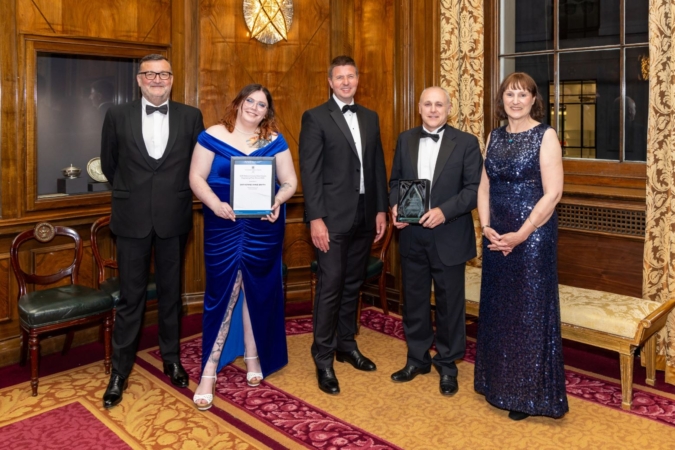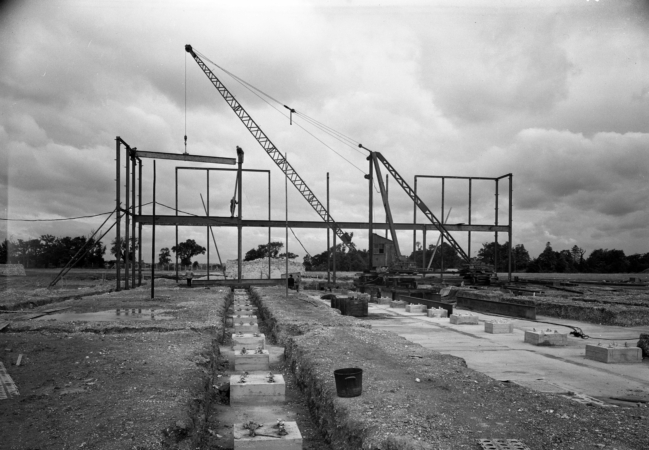“Go tell someone that STEM is fun”
By Sian Butler, AWE Head of Materials and Analytical Science
17th August 2017 was an exciting day in the Butler household.
Like thousands of students across the country our youngest son was anxiously waiting for A Level results that would determine, at the very least, the next 3 years of his life.
After many months of hard work, tension and a fair bit of finger crossing he nervously opened his UCAS track to find… great news! He had been accepted into his firm choice to study Maths.
Milestone moments like this are memorable in their own right but equally a chance for reflection.
A common question in the minds of many parents at this point must be “how did all the time pass so quickly?” The last 2 years in particular have flown by. It seems just a blink of an eye since we were nervously waiting for his GCSE results.
His time in the local sixth form started with an induction, which included an opportunity for parents to visit and meet the teachers. As we entered the school hall I noticed there was a list of students against each A Level subject. There were so many who had chosen English and Philosophy 2 pages of A4 were needed to include the class. These teachers had long queues of parents and students waiting to have a chat.
The story was very different for Maths, Chemistry and Physics…..a single sheet of paper was more than enough to hold the small number of names who had picked these subjects… we didn’t have to queue.
As a Chemist myself the question in my mind was “why?” Many of his friends had great results in GCSE Science and Maths .. why didn’t they want to learn more about the world we live in and how it works?
One of the most fun aspects of my role at AWE is that I get the chance to attend Science and Engineering events staff arrange for local schools.
I honestly haven’t yet met a primary/early secondary school student who doesn’t have a great time making water rockets, stretching slime, playing with magnets or building egg catchers.
At some point though this great excitement fades and by the start of A levels Science and Maths lose their attraction.
There are numerous studies and reports that highlight the gap in the supply of STEM (Science, Technology, Engineering and Maths) professionals and UK demand. The need for people with these skills is not going to disappear, in fact as we move into a world that is increasingly dependant on technology, we will need more and more people who can design, build and maintain it.
There is much we don’t understand about the world in which we live, there are many problems that still need to be solved, diseases that need to be conquered and places in this world and beyond waiting to be explored. So how do we get future generations to take up the challenge to be the scientists and engineers of the tomorrow?
To answer this I started thinking about why I chose Chemistry. There were 3 key points.
- I had an accessible role model. My Mum worked as a laboratory technician in a hospital pathology laboratory. She wasn’t a Nobel Prize winning scientist, she came from an ordinary working class background and was a “normal” person who had a passion for science at school that translated into a career. For her generation, with her background there was no chance at all she could go to University, so studying took place at evening school. Like the majority of women in the 1960’s she gave up work when she had children. So she shared her enthusiasm for Science with us at home… long before “Horrible Science” kits came into our shops we did experiments in the kitchen. I was taught from an early age that science was both fun and could lead to a career that was accessible.
- I wasn’t daunted. I enjoyed maths and science so I worked hard in these subjects and did well. I liked solving problems using logic and reason. I had teachers who explained things and helped when I didn’t understand. For some people there is a point where science and maths stop being fun and become “difficult”, a wall comes down and they stop trying to breakthrough to understanding. Even if this doesn’t happen STEM subjects are often referred to as “hard” subjects. Why on earth wouldn’t you drop them as soon as possible?
- I was interested and wanted to know more. Who wouldn’t? Humans have an innate curiosity. We are born wanting to learn and explore the world around us. I honestly didn’t expect to discover the cure for cancer or solve global warming but the idea that I could have a career that allowed me to continue to “discover” things was really appealing.
To encourage future generations to become STEM professionals there are some simple things we can all do.
- Be great role models. If you are a scientist, engineer, mathematician or technologists get out there and talk to people about what you do. Make it sound interesting and exciting. Explain what a career in a STEM subject is really like…if you have young people in your life who are thinking about their future show them the opportunity.
- Be great teachers. Some of the most brilliant people I have had the honour to work with have an incredible ability to make complex issues simple. We can all do this to some degree – if we take the time to share a piece of knowledge with someone else in a way they can understand we will start breaking down the myth that STEM subjects are inaccessibly hard.
- Be inquisitive … so back to the water rockets, slime etc. however old you are science is still fun. Learn something new, go look at the stars, build a water rocket, go into your kitchen mix vinegar with bicarbonate of soda and watch it “fizz”. I bet it makes you smile… if it does go tell someone that STEM is fun.
Find your future career here.



